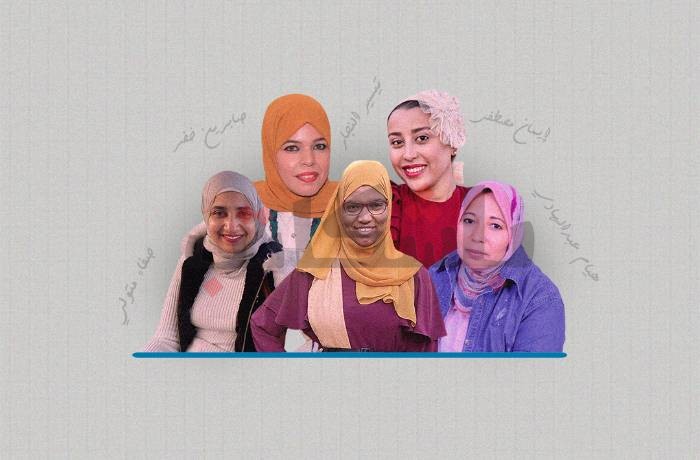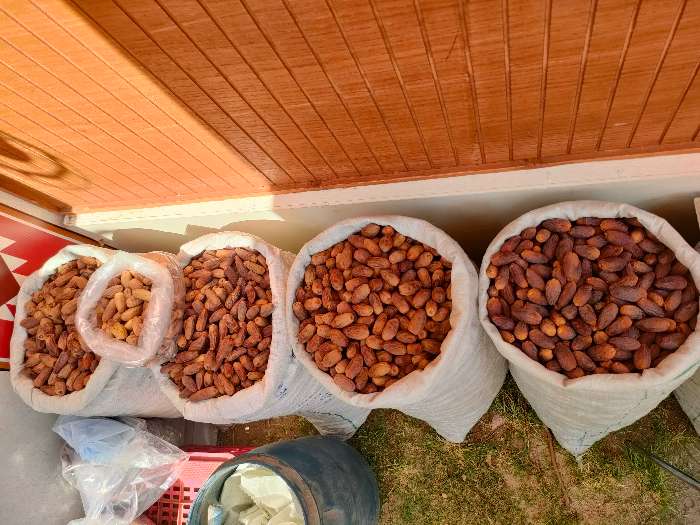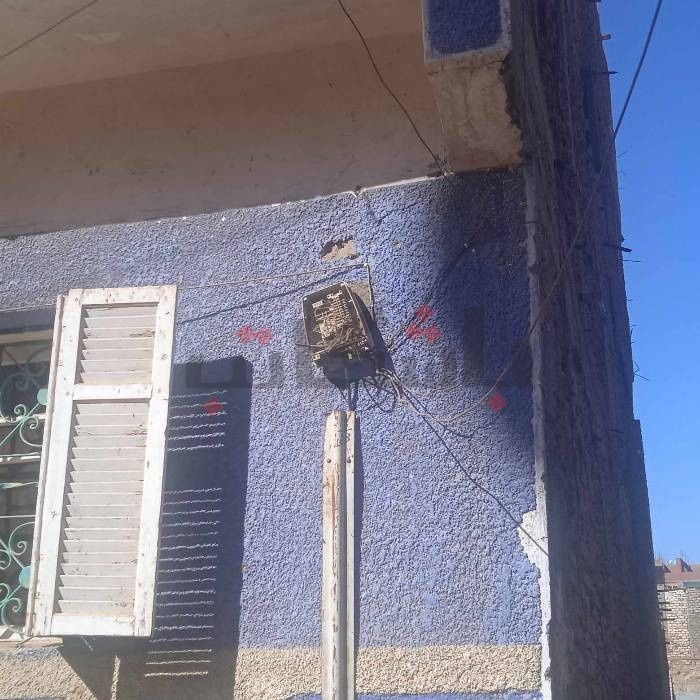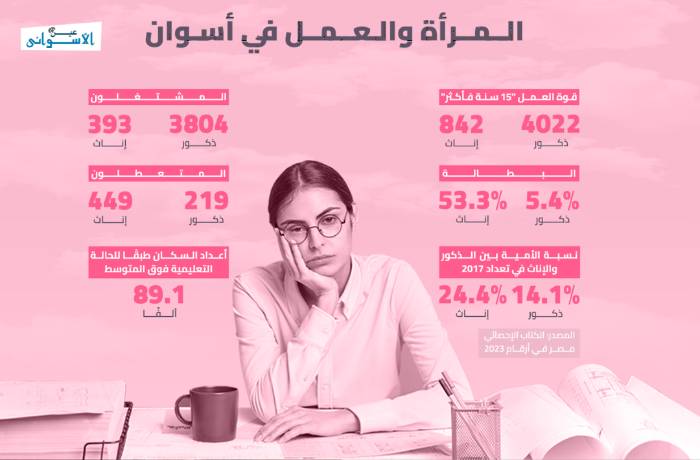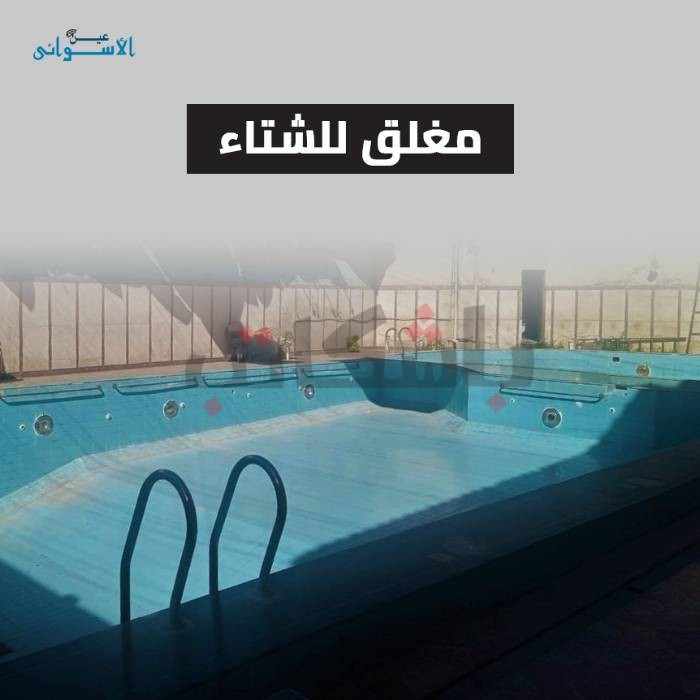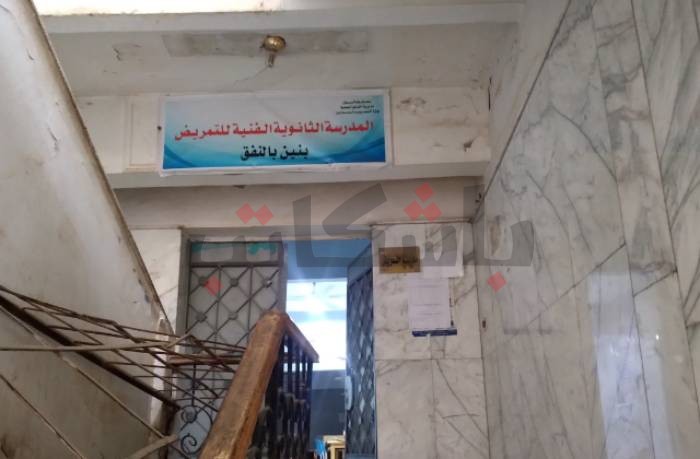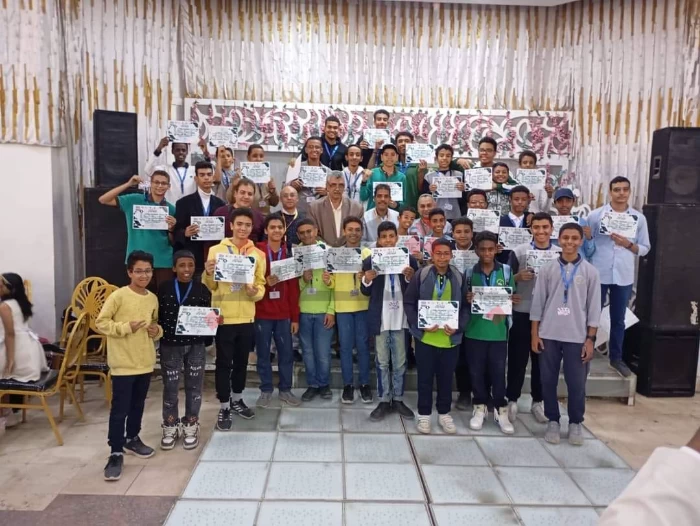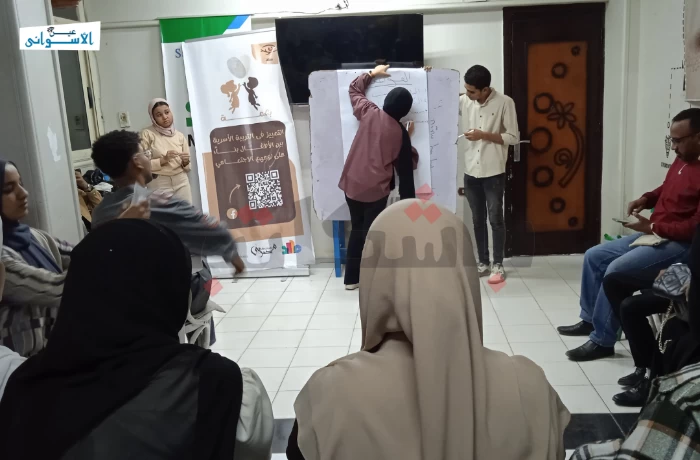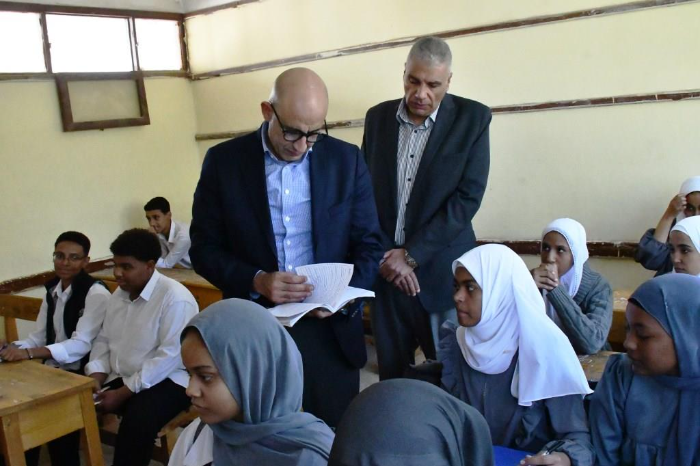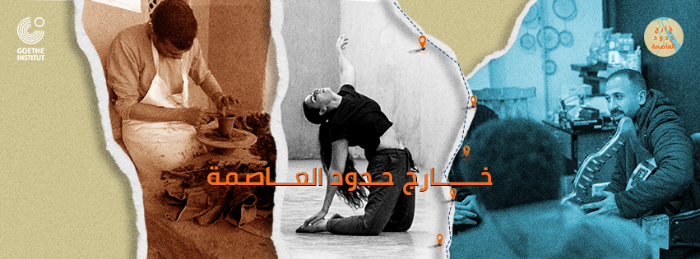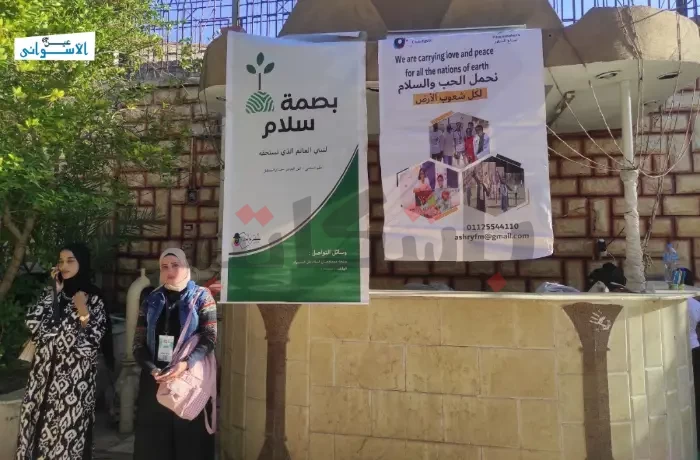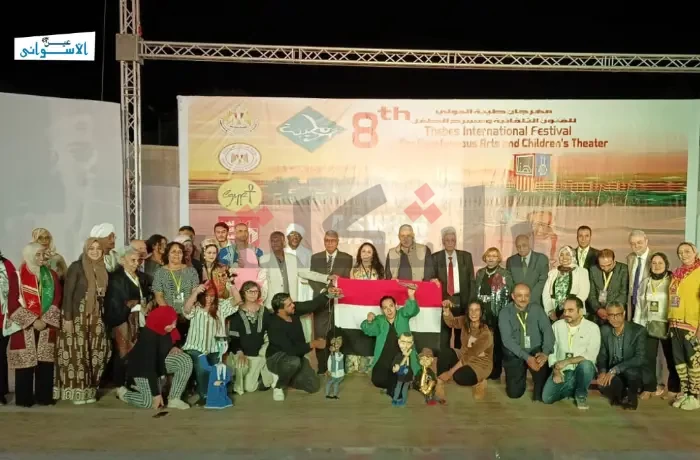Safaa Metwalli participated with her second published book in the last Cairo International Book Fair, it was a collection of short stories called “Gharieba’s Promise”.
Finally, Safaa was able to stand proud in front of rows of copies of her book, to meet her readers, and to be one of those participating in the production of cultural works.
With hundreds of publishing houses, thousands of books, and millions of visitors, the book fair puts the salt on Safaa’s fresh wound and her fellow writers in Aswan; they suffer from being away from the cultural movement which is centred only in Cairo, diverting the light away from those living in other governorates.
Safaa published her first book in 2020 after her friends encouraged her to do it, she had to sponsor it’s publishing costing her 10,000 EGP in exchange for publishing and distribution, for according to Saffa, publish houses refuse to publish for new writers for free, let alone a writer from far Upper Egypt.
As for her second book, she only participated in its publishing paying 3,000 EGP as it was sponsored by a cultural initiative in which she took part, which helped her meeting other writers, publishing the novel, and supporting the cost of its production.
Safaa travelled to Cairo to attend the book fair, she was happy to have her book shown there, which took away some of the exhaustion of the long hours and far distance… it was a chance other female writers weren’t privileged to it because of the publishing cost or their families refused to let them travel.
Just like Iman Moustafa who couldn’t witness her novel shown at the book fair as her family refused to let her travel alone. She feels separated from the cultural world and the readers, and her relationship with her novel was severed once it was published, for the publish house is located in Cairo and Iman couldn’t find one in her governorate.
Iman started in 2018, and although she paid 500 EGP only for publishing her book, she found herself allowed to own 5 copies only, and she knew nothing about the distribution and publishing of her book afterwards. The novel wasn’t sold in Aswan, and sales were restricted to Cairo only for reasons related to the publish house’s marketing abilities, indicating that the everlasting problem is that big publish houses refuse to publish for new unknown writers, and small ones do not distribute in other governorates.
“I’m going to publish my next book electronically instead of facing the challenges of travelling and high publishing cost”, said Iman after the end of the book fair she couldn’t attend.
In addition to being a veterinarian, Hayam Abdulhadi has practiced writing as a hobby since 1999, clarifying that the writer’s most challenging obstacle is publishing their works, indicating that during her journey as a writer, which resulted in producing 10 literary works, the most prominent of which was “Henna Flower” and “The Lake”, Hayam faced many unpleasant incidents with different publish houses.
“Some publish houses asked me to pay the cost of printing and distributing the books, in return of having some copies for myself and not knowing whether the book was actually sold or not? This is in addition to the rise in paper prices. I spend money on my works so that people can read them, without making a profit from them, because readers are the most important thing for a writer”, said Hayam.
Hayam cannot stop writing as other girls did, although they were good writers but they had to withdraw for there weren’t much options for them, “I tried to stop for five years, but I felt detached from the thing I love, so I decided to do it even at my own cost”, added Hayam.
Cultural workshops are considered one of the most important portals in helping new writers publish their books, such as Al-Mastaba Workshop, organised by Daru Cultural Palace, which is interested in training female writers on creative writing.
The thing that Sabrine Khedr exactly did, she didn’t only attend Al-Mastaba Workshop, but also participated in organising it as well; “I published my first short stories collection, “What A Cloud Said”, in 2019, and paid for the publishing cost from my own pocket; I was excited to have my first work published at that time and didn’t notice that my experience in publishing technicalities was next to nothing, that’s why I asked a publish house in Zagazig city, which I got to know while organising cultural evenings in Aswan, to publish my short stories collection”, said Sabrine.
Then added, “I received all the copies and distributed part of them over my friends and those attended the signing, then I left the rest in a books store in Aswan. I wholly handled the marketing and sales from the beginning, but I couldn’t continue, so I started to participate in cultural awards which handled the financial and marketing operations of literary works”.
However, Tayseer Al-Naggar objected to writing workshops, saying that she is only convinced that only reading for a long time can refine a writer’s talent, then you can show and discuss your production with others later on, indicating that the internet now is available for writers to show their talents.
Tayseer also objected on writers paying to publish their works, pointing out that publish houses do not market a book that they already got paid for. She witnessed many experiences, during which books were placed in the darkness of storages without seeing the light because the publishing house got paid in exchange for printing, and did not care about the writers’ profits in exchange for selling their books.
Despite being away from Cultural Palaces as she lives far away in Al-Aqab village, Tayseer managed to connect with the writers in her village, such as Ahmed Abu Kheniegar and Alya Talha who helped her in writing through discussing and developing her productions. Tayseer published her first works in 2013 through writing for newspapers and magazines gaining her a reputation in the cultural circles, later she published her first complete literary work in 2016.
“Despite being published, some major publishing houses refuse to publish my works, for priorities are always for big names who have thousands of followers, but I won’t stop trying”, said Tayseer.
Then added, “I’m still facing many challenges, including the lack of book stores for the publishing houses in Aswan to display the books we publish, and despite Dar Al-Maaref’s initiative to deliver books to the rest of the governorates, what we receive are only samples... in addition to the lack of the hard copies of literary magazines in which I publish my articles in, so I have to get the e-copies only”.
